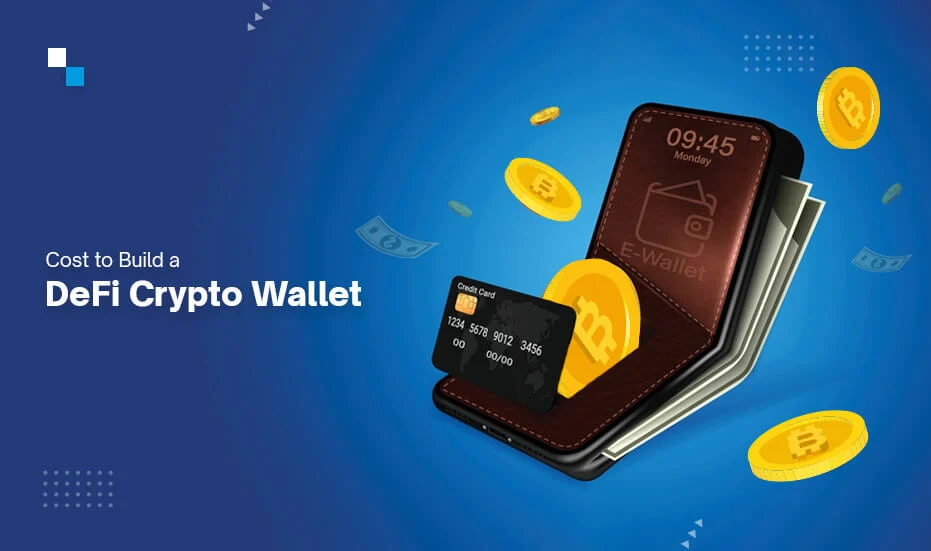What is a Crypto Wallet?
In the exciting world of cryptocurrencies, a crypto wallet is your key to accessing and managing your digital fortune securely.

In the rapidly evolving landscape of cryptocurrency, a crypto wallet stands as a fundamental tool that enables individuals to securely store, manage, and transact with their digital assets. As the popularity of cryptocurrencies like Bitcoin, Ethereum, and numerous altcoins continues to soar, understanding how crypto wallets work is essential for anyone venturing into this exciting realm. This article delves into the concept of crypto wallets, their types, functionalities, and the importance of safeguarding your digital riches.
Cryptocurrencies, with their decentralized and borderless nature, have revolutionized the financial industry. At the core of this revolution lies the crypto wallet, a digital tool that empowers users to interact with and manage their virtual assets securely.

Understanding Crypto Wallets
What Exactly is a Crypto Wallet?
Contrary to its name, a crypto wallet does not physically store your digital coins. Instead, it stores the cryptographic keys ? the public and private keys ? that are essential for accessing and managing your cryptocurrencies. The public key acts as an address to which others can send you cryptocurrencies, while the private key grants you access to send or transfer those assets.
How Do Crypto Wallets Work?
Crypto wallets utilize a combination of cryptographic algorithms to generate and manage key pairs securely. When someone sends you cryptocurrencies, they are essentially transferring ownership of those coins to your wallet's public key. To access and use these cryptocurrencies, you need your wallet's private key, which should be known only to you.
Types of Crypto Wallets
Software Wallets
Software wallets, also known as desktop wallets, are applications that you install on your computer or mobile device. They provide easy access to your cryptocurrencies and are particularly useful for regular transactions.
Hardware Wallets
Hardware wallets offer heightened security by storing your private keys on a physical device. This device is often USB-like and is disconnected from the internet when not in use, making it resilient against online threats.
Paper Wallets
A paper wallet involves generating your keys offline and printing them on a physical piece of paper. While it's considered highly secure, it can be cumbersome to use, as you need to manually enter your keys for transactions.
Online/Web Wallets
Online wallets are web-based platforms that store your keys on remote servers. They offer convenience but come with potential security risks, as they're susceptible to hacking attacks.
Setting Up Your Crypto Wallet
Creating a New Wallet
To create a new crypto wallet, you typically need to choose a wallet provider and follow their registration process. This may involve providing an email address, setting a password, and agreeing to the platform's terms of service.
Securing Your Wallet with Strong Passwords
Creating a strong and unique password for your wallet is crucial. It's recommended to use a combination of upper and lower-case letters, numbers, and special characters.
Public and Private Keys
The Role of Public Keys
Your wallet's public key serves as a destination address for receiving cryptocurrencies. It's safe to share your public key with others, as it doesn't grant access to your funds.
Safeguarding Your Private Key
Your private key must be kept secret at all costs. Anyone with access to your private key can control and transfer your cryptocurrencies.
Importance of Wallet Security
Two-Factor Authentication (2FA)
Enabling 2FA adds an extra layer of security to your wallet. It typically involves receiving a verification code on your mobile device, which you need to enter along with your password.
Biometric Authentication
Some wallets offer biometric authentication, such as fingerprint or facial recognition, further enhancing security and ease of access.
Regular Software Updates
Keeping your wallet's software up to date is crucial, as updates often include security patches and improvements.
Making Transactions with Your Crypto Wallet
Receiving Cryptocurrencies
To receive cryptocurrencies, simply provide the sender with your public key or QR code. Once the transaction is initiated, the funds will appear in your wallet after confirmation.
Sending Cryptocurrencies
Sending cryptocurrencies requires the recipient's public key or address. Enter the relevant details in your wallet's interface, specify the amount, and confirm the transaction.
Choosing the Right Wallet for You
Decentralization and Control
If you value full control over your funds and transactions, opt for a wallet that allows you to manage your private keys.
Frequency of Transactions
For frequent transactions, software wallets provide quick access. For long-term storage, hardware wallets are more secure.
Cryptocurrency Portfolio Diversity
If you hold various cryptocurrencies, consider a wallet that supports a wide range of coins.
Common Misconceptions About Crypto Wallets
Crypto Wallets Store Actual Coins
Contrary to physical wallets, crypto wallets store keys, not the coins themselves.
Wallets Are All the Same
Different wallets offer varying levels of security, convenience, and features. Choose one that aligns with your needs.
Securing Your Wallet Against Loss
Backing Up Your Wallet
Regularly back up your wallet's private key or recovery seed phrase. This ensures you can recover your funds if you lose access to your primary key.
Recovery Seed Phrases
A recovery seed phrase is a sequence of words that can be used to restore your wallet. Keep this phrase offline and in a secure location.
The Future of Crypto Wallets
As the cryptocurrency space continues to evolve, so will crypto wallets. Expect more user-friendly interfaces, enhanced security features, and integration with emerging technologies.
In the exciting world of cryptocurrencies, a crypto wallet is your key to accessing and managing your digital fortune securely. Whether you're a seasoned crypto enthusiast or a newcomer exploring the possibilities, understanding how crypto wallets work and safeguarding your keys is paramount.
What's Your Reaction?
















